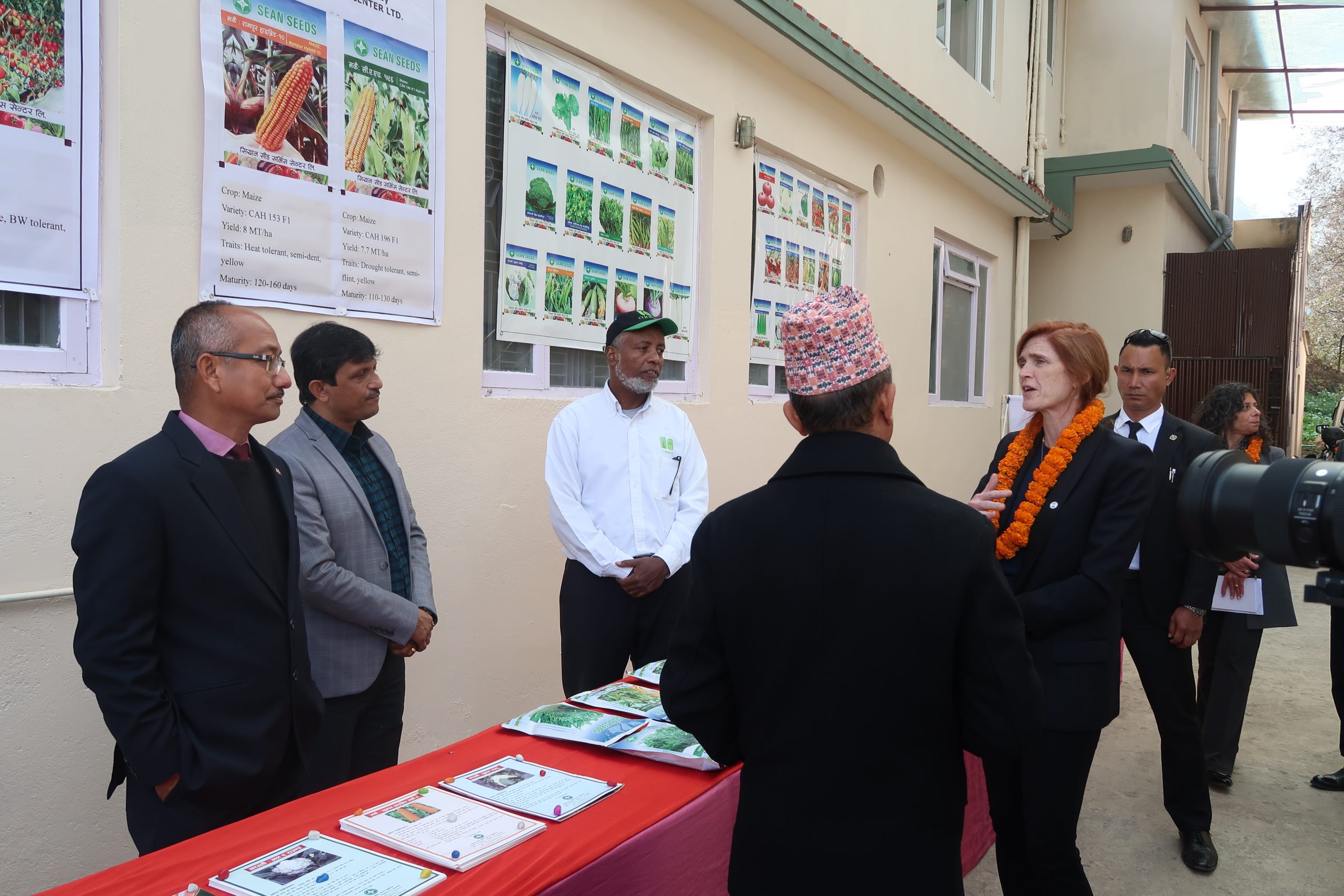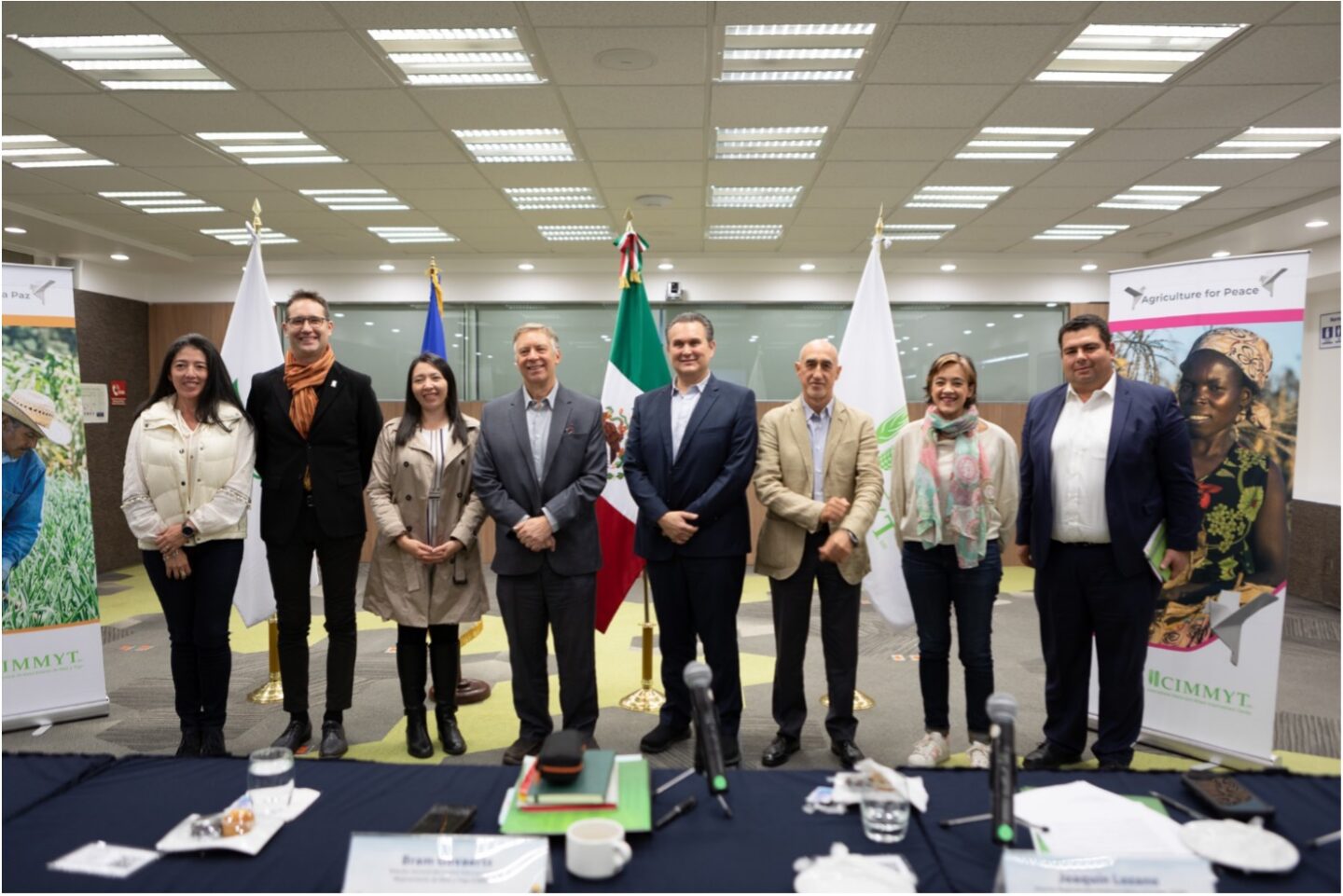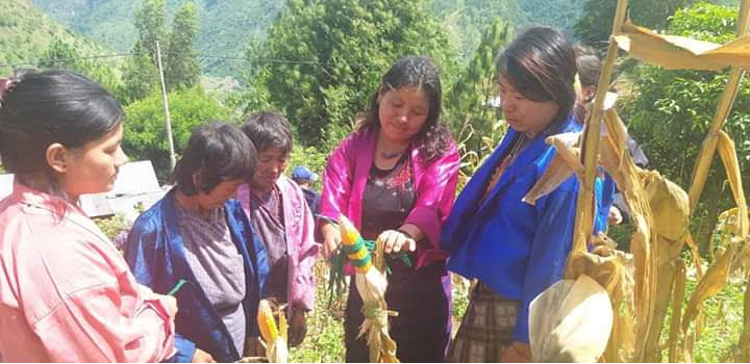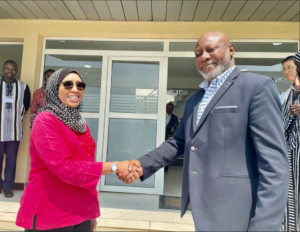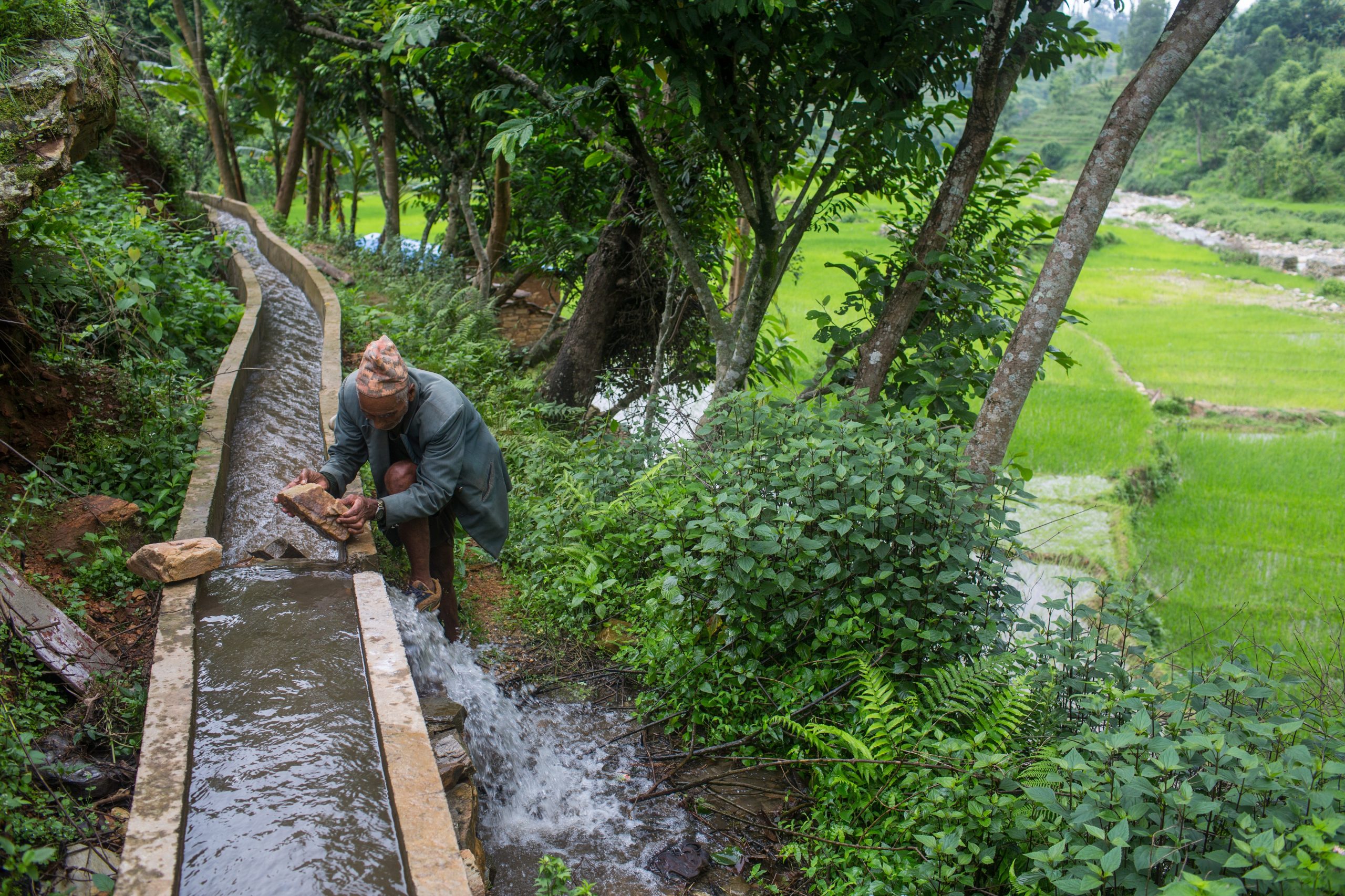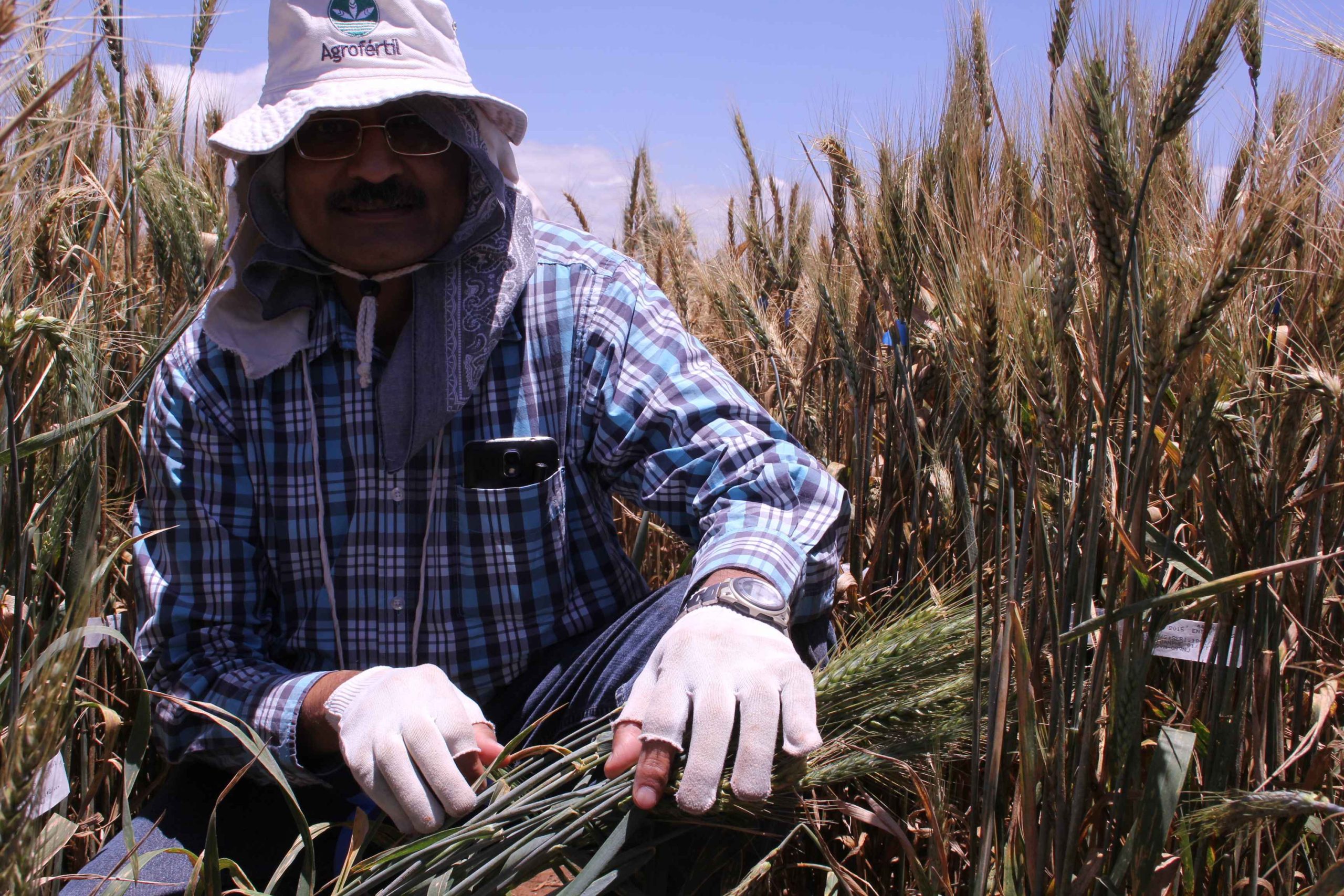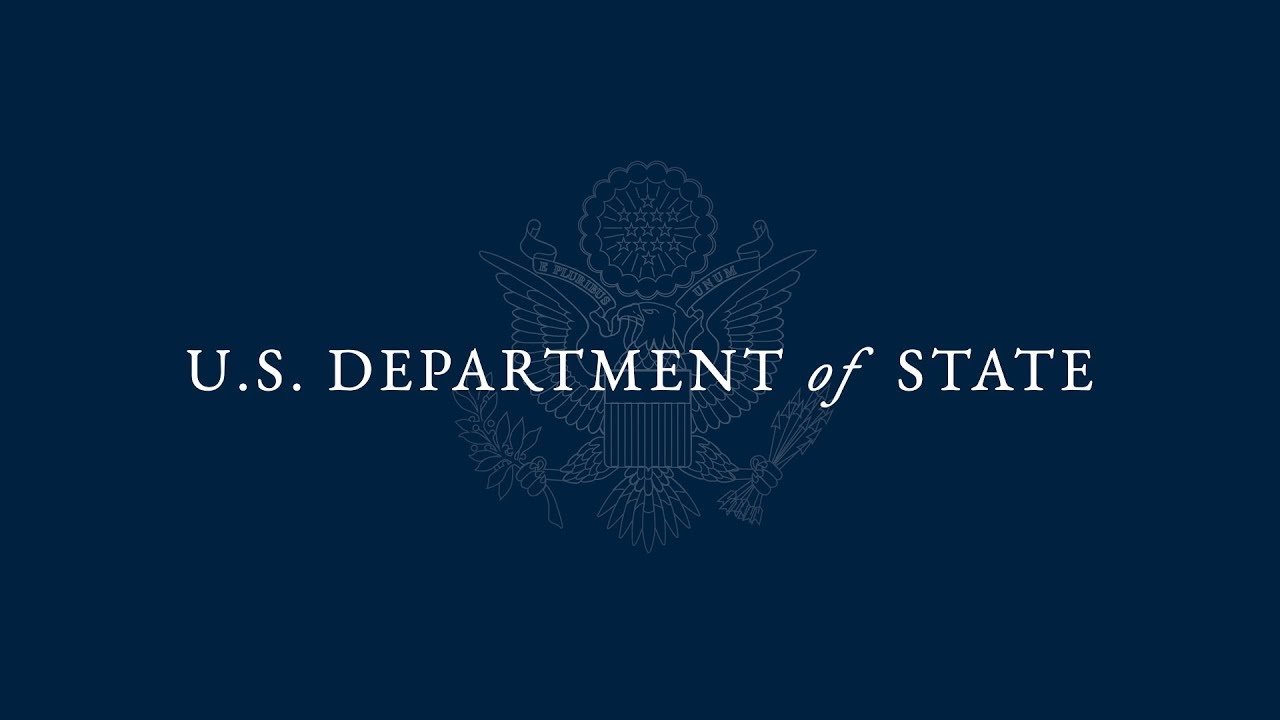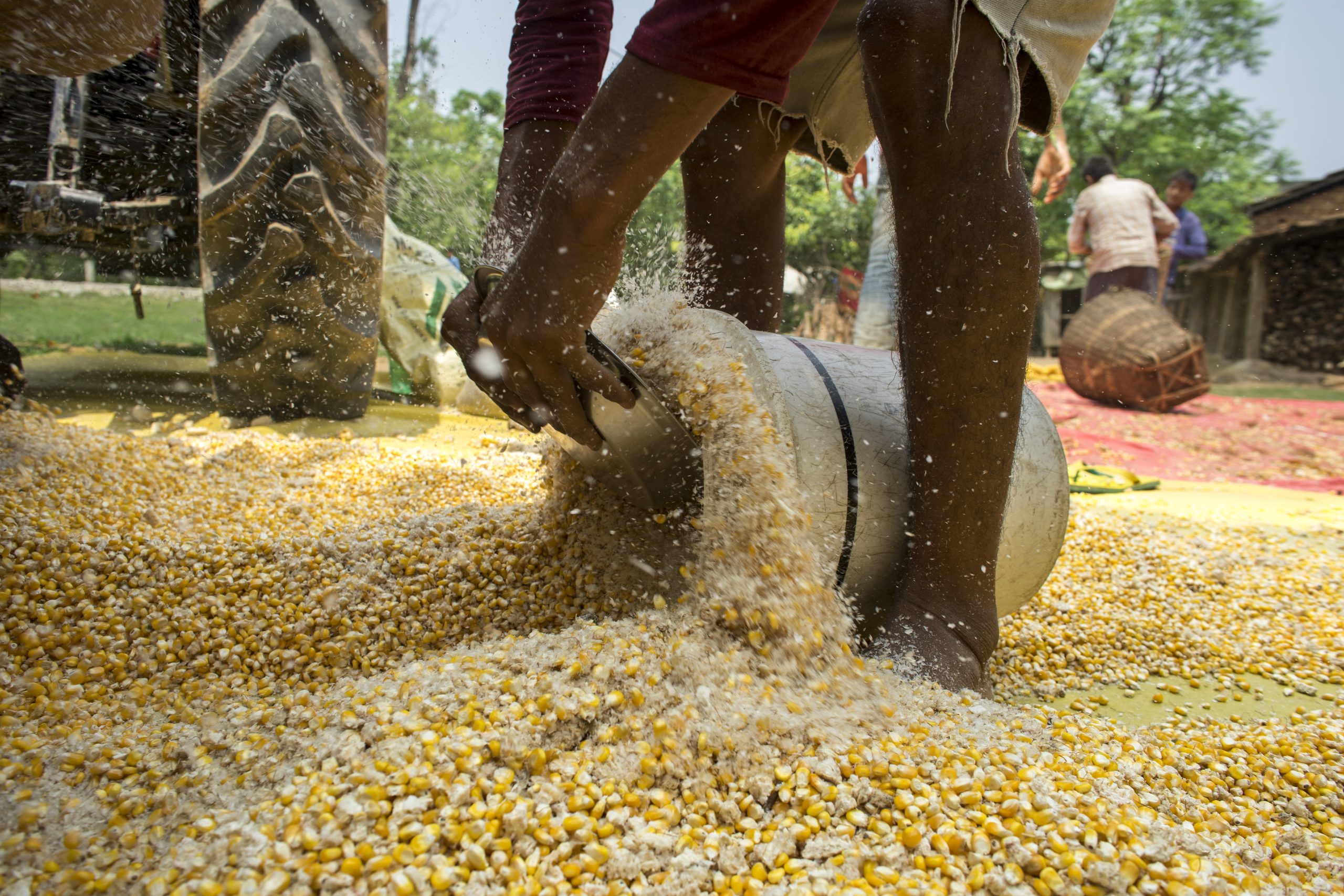Nutrition, health and food security
As staple foods, maize and wheat provide vital nutrients and health benefits, making up close to two-thirds of the world’s food energy intake, and contributing 55 to 70 percent of the total calories in the diets of people living in developing countries, according to the U.N. Food and Agriculture Organization. CIMMYT scientists tackle food insecurity through improved nutrient-rich, high-yielding varieties and sustainable agronomic practices, ensuring that those who most depend on agriculture have enough to make a living and feed their families. The U.N. projects that the global population will increase to more than 9 billion people by 2050, which means that the successes and failures of wheat and maize farmers will continue to have a crucial impact on food security. Findings by the Intergovernmental Panel on Climate Change, which show heat waves could occur more often and mean global surface temperatures could rise by up to 5 degrees Celsius throughout the century, indicate that increasing yield alone will be insufficient to meet future demand for food.
Achieving widespread food and nutritional security for the world’s poorest people is more complex than simply boosting production. Biofortification of maize and wheat helps increase the vitamins and minerals in these key crops. CIMMYT helps families grow and eat provitamin A enriched maize, zinc-enhanced maize and wheat varieties, and quality protein maize. CIMMYT also works on improving food health and safety, by reducing mycotoxin levels in the global food chain. Mycotoxins are produced by fungi that colonize in food crops, and cause health problems or even death in humans or animals. Worldwide, CIMMYT helps train food processors to reduce fungal contamination in maize, and promotes affordable technologies and training to detect mycotoxins and reduce exposure.
Ethiopia’s Experience of Wheat Production Exemplary to African Countries: CIMMYT
 Nutrition, health and food security
Nutrition, health and food security
Source: Ethiopian News Agency (21 Feb 2023)
The partnership between CIMMYT and Ethiopia is improving wheat productivity through improved germplasm and access to mechanization.
Private sector support essential for agribusiness
 Nutrition, health and food security
Nutrition, health and food security
Seed company visit highlights the role private sector can play in accelerating agricultural transformation in Nepal.
The IDB and CGIAR discuss the importance of strengthening agrifood systems in Latin America and the Caribbean
 Nutrition, health and food security
Nutrition, health and food security
CGIAR’s Regional Office for Latin America and the Caribbean, in collaboration with the International Maize and Wheat Improvement Center (CIMMYT), organized an important roundtable discussion at the beginning of February on the Inter-American Development Bank (IDB) report entitled Competing in Agribusiness: Corporate Strategies and Public Policies for the Challenges of the 21st Century.
African smallholder farmers hit hard by global food shortage: expert
 Nutrition, health and food security
Nutrition, health and food security
Source: Africa Briefing (13 Feb 2023)
Bram Govaerts emphasizes the potential for agricultural development in Africa using nutritious indigenous crops.
Staple commodities: Country can save $1.3bn annually by developing efficient storage system
 Capacity development
Capacity development
Source: Business Recorder (2 Feb 2023)
The development of hermetic storage technology can help farmers in Pakistan to protect their crops post-harvest and pass on financial savings to consumers.
Farmers harvested double yield by adopting Wengkhar Hybrid Maize 1 in Bhutan
 Nutrition, health and food security
Nutrition, health and food security
A type of heat- and drought-tolerant maize is improving yields for Bhutanese farmers.
Xiplomacy: China, LAC countries embrace new era of win-win cooperation
 Nutrition, health and food security
Nutrition, health and food security
Source: Big News Network (26 Jan 2023)
An article in the Big News Network examines opportunities for collaboration between China and Latin America and the Caribbean.
Five strides forward for CGIAR crop breeding resources and services
 Nutrition, health and food security
Nutrition, health and food security
One CGIAR’s Breeding Resource Initiative is moving forward on an array of shared services, capacity development programs and technical support.
More than a drop in the bucket: addressing food security in Nepal through improved sustainable irrigation
 Climate adaptation and mitigation
Climate adaptation and mitigation
The downstream effects of the war in Ukraine imperils food security in countries like Nepal. A CSISA-led activity looks to boost local production via increased sustainable irrigation capacity and investment.
Pravasi Bharatiya Samman winner, scientist Dr Ravi Singh is working towards food security for all
 Environmental health and biodiversity
Environmental health and biodiversity
Source: Global Indian (20 Jan 2023)
A distinguished scientist and Head of Global Wheat Improvement at the International Maize and Wheat Improvement Center (CIMMYT) in Mexico, Dr. Ravi Prakash Singh dedicated almost four decades towards increasing food production across the globe.
Digital Press Briefing with U.S. Special Envoy for Global Food Security Dr. Cary Fowler, and USAID Global Food Crisis Coordinator Dina Esposito
 Nutrition, health and food security
Nutrition, health and food security
Source: U.S. Department of State (19 Jan 2023)
Cary Fowler and Dina Esposito highlight CIMMYT’s work in southern Africa to address food insecurity.
Closing the investment gap for sustainable agriculture
 Climate adaptation and mitigation
Climate adaptation and mitigation
Source: Global Trade Review (16 Jan 2023)
The Ukraine crisis has triggered spikes in food and fertilizer prices, increasing poverty and hunger worldwide. But with a significant financing gap in investments aimed at supporting food systems, could unlocking new markets prove a fruitful way of mitigating food insecurity?
Exotic wheat DNA helps breed ‘climate-proof’ crops
 Climate adaptation and mitigation
Climate adaptation and mitigation
Source: Phys.org (10 Jan 2023)
Wheat containing exotic DNA from wild relatives benefits from up to 50 percent higher yields in hot weather compared with elite lines lacking these genes, according to a new study.
Mexico Agriculture: Thrive on the Shift from Efficiency to Resiliency
 Climate adaptation and mitigation
Climate adaptation and mitigation
Source: AgNews (29 Dec 2022)
CIMMYT Director General Bram Govaerts looks at challenges facing Mexican and global agricultural systems.
A sustainable solution to micronutrient deficiency
 Nutrition, health and food security
Nutrition, health and food security
Zinc and provitamin A biofortified maize genotypes have potential to reduce hidden hunger in Nepal.

